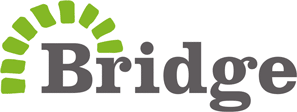Bridge Open letter: Response to Nigeria Report by Education International
7 June 2018
We agree with the Education International sponsored authors that low cost private schools are not an alternative to public education in Lagos. So we commend the authorities in Lagos for creating an environment in which many different types of quality school operators can work alongside one another to help alleviate the shortage of schools in Nigeria more quickly.
The more authoritative World Bank Development Report “Learning to Realize Education’s Promise” stated that providing education is not enough as this tends to create an emphasis on buildings and classrooms.Rather what is important and what generates a real return on investment, is children learning and acquiring skills. To undermine or neglect the harsh realities of the global learning crisis, will translate into severe shortcomings in the workforce and a failure to eradicate poverty or create shared opportunity and prosperity for all. This highly respected international report also concludes that the private sector should help provide learning when governments struggle to meet their obligations.
The recent high quality study by Tessa Bold and seven other international education academics, published by the Journal of Economic Perspectives, concludes after looking at Nigeria and other countries in sub-Saharan Africa, that “no public primary schools in these countries offer adequate quality education.” This is why Nigerian authorities and others are innovating and collaborating to rapidly improve the wider education systems.
Against this backdrop, there is the need for concerned governments, private organisations, social enterprises and civil society organisations around the world to think outside the box, change the status quo and seek partnerships that will improve learning outcomes, giving every child the opportunity to attend a good school and deliver SDG4.
Bridge International Academies (Bridge) believes, as do our partners and communities, that effectiveness should be measured on outcomes and in the case of education, learning gains. It is therefore worrisome that campaigners who oppose reform such as Education International (EI) would publish a report faulting parents for focusing on learning outcomes when choosing schools for their children.
EI may believe that it understands the needs of Nigerian children better than their parents, but that seems unlikely. Nigeria is a nation in need of collaborative efforts by the private and public sectors to revamp the ailing education sector. EI and their supporters are from organisations who openly campaign against education reforms and offer ideological objections to reforms without concrete and immediate solutions to a crisis affecting hundreds of millions of children here in Nigeria and other developing countries.
Having reviewed the report and its conclusions, it is important to note that there are factual inaccuracies and broad misunderstandings, the presence of which undermine the wider conclusions the report seeks to draw.
To address the issues raised in the report by EI, we are pleased to set the record straight:
The report states that Bridge prides itself on employing teachers without recognised qualifications.
This is not true as all Bridge teachers are qualified and trained to teach in Bridge schools. We hire individuals with degrees, experience and a passion for teaching to serve as full time teachers and head teachers in our schools. Bridge is not in contravention of the Lagos State Minimum regulations, as the authors claim.
We provide high-quality professional training and support for all of our teachers, after they are hired but before they enter the classroom, as well as throughout their careers with us. Bridge supports its teachers with continuous professional development programs both inside and outside the classroom during and after term time.
We are glad that the authors confirmed in the report that the two Bridge teachers they interviewed were qualified. And that since joining Bridge, they had received two-and-a-half weeks of additional training on information and communications technology (ICT) and classroom management. It is therefore surprising that the authors would suggest to the contrary when the limited evidence they gathered does not support their view.//Bridge was announced by an independent body as a Top 10 Employer in Africa, a reflection that it is a natural choice for teachers and others seeking professional development and wanting to feel empowered in the work that they do.
The report states that Bridge is on average more expensive for parents and is not serving the poor.
This is not true as Bridge’s school fees remain within the official threshold of low income school fees. It is important to note that Bridge’s school fees includes the cost of classwork books, homework books and all textbooks used in class. Bridge fees also includes the cost of extra lessons from 2pm to 5pm. A fact that the authors do not seem to be aware of when comparing Bridge to other schools.
We make our schools available to everyone who wants to give their children the chance to a life changing education and learning. In addition to the low fees, there are scholarship programmes in place to support families who are unable to send their children to school or find it extremely difficult to manage the low fees. In 2017, we also introduced another financial assistance program to further provide support for families in our communities.
Bridge operates in low income communities where monthly incomes range from between N20,000 and N53,000. Whereas the Nigerian middle class which makes up about 23% of the Nigerian population, according to African Development Bank (AfDB) data attracts average monthly income range of N75,000-N100,000.//We note that the findings from the report revealed that Bridge “Pupils are given more than they pay for”. A finding suggesting the value that parents and communities clearly perceive at Bridge schools in their communities.
A initial £3.45m grant was awarded to to Bridge in 2015 – 3 years ago – by DfID through Developing Private Education in Nigeria (DEEPEN).
This sum was a minor component of a 2-part £9.6 million grant given to DEEPEN. The DEEPEN program was set up to provide financial support for developing and deploying innovative models for affordable education to improve the quality of education for children in Lagos. The Global Partnership for Education, DfID, WEF and the World Bankreports have firmly advocated the use of private sector help in tackling the learning crisis. The reality we in Nigeria live in today, is that our education system is in dire need of re-building.
UK Aid DEEPEN reports that only 17% of children, after four years of primary education, attain core literacy & numeracy competencies in Lagos. So while the authors of the EI report dismiss Bridge’s focus on learning outcomes, it is important to note that being in school but not learning is a significant issue. Bridge is committed to supporting the achievement of SDG4 in a sustainable and scalable way and was awarded the grant in question in 2015 to radically improve learning gains for children living in low income communities in Lagos which is being achieved. After three years of operation in Nigeria, Bridge is delivering life changing education to about 12,000 children in 63 academies in Lagos and Osun states low income communities. Some of these communities are: Igbogbo, Igando, Agura, Eruwen, Egbe, Ijede, Ewu Elepe, Ajangbadi, Ekoro, Meiran, Ajara, Mowo Nla, Ilogbo, Agbede, Ijegun, Abaranje, Ije-Ododo, Ikire, and Modakeke.
We are delighted that 82% of the parents whom we serve, in a recent satisfaction survey (April 2018) are either satisfied or very satisfied with Bridge. Parents choose Bridge because of the learning outcomes that it’s delivering while teachers choose Bridge because of the supported and empowered environment they get to join. The State Governor in Lagos is showing real leadership in tackling education and we are proud to be an education partner in the State.
The report states that approval standards were lowered to accommodate Bridge.
Again, this is factually incorrect. It is worth pointing out that a key advisor and contributor to this report, Joanna Harma, through her recommendations in the DEEPEN Report 2013 championed the review of approval standards for low fee paying schools with the Lagos State Government. The project formed part of the basis for the revised Guidelines for Public and Private Schools in Lagos State. It is therefore surprising that Education International, in a report which Harma contributed to, stated that approval standards were lowered to accommodate Bridge.
The report states that Bridge refused to permit access to our schools in Lagos, despite a detailed presentation of their research design and aims for the study.
Bridge welcomes and supports researchers who are in the process of producing credible research for respected institutions; sadly research being commissioned by Education International on innovative education approaches does not fall under this category. This is evidenced by the fact that the report authors based their report on claiming to have interviewed two parents of children in Bridge and two teachers in each of the areas they visited, it is therefore noteworthy that the academic basis of this report in terms of research standards and sample and holistic perspective size leaves much to be desired. Using a sample size of 10 people – 6 parents and 4 teachers for Bridge which has over 500 teachers in Nigeria and thousands of pupils and parents is not a valid representation of the organisation.
Bridge generally welcomes and supports researchers in their studies. This is evidenced by RCTs taking place with Centre Global Development and Innovation Poverty Action and Harvard University. Currently, the external international development consulting firm Oxford Policy Management (OPM) is conducting a research study on Bridge schools through the Education Data, Research and Evaluation In Nigeria (EDOREN) project, its team were given full access to our schools, pupils, staff and parents as needed.
Whilst we appreciate the contribution that researchers can make in considering innovative approaches to tackle the global education crisis challenges, it is important that research should be based on strong empirical evidence rather than bias or inaccuracy. Research should only inform policy and decision making if this is the case.
We welcome those that seek to contribute to tackling the learning crisis in Nigeria. We hope that Nigerians will disregard the comments by a minority of Western academics and campaigners and instead focus on the learning gains taking place in local Nigerian schools and communities.





